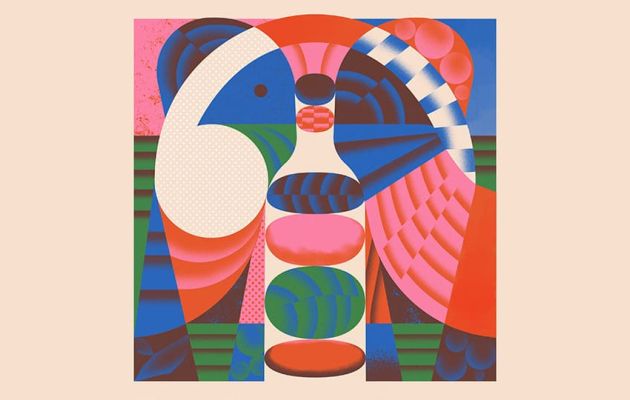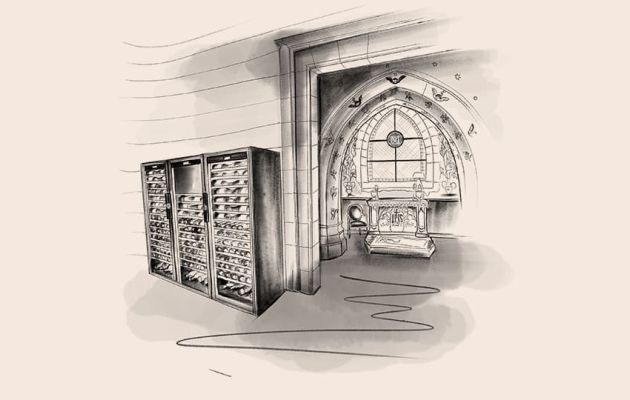[ PORTRAIT ]
Actor // Sweden
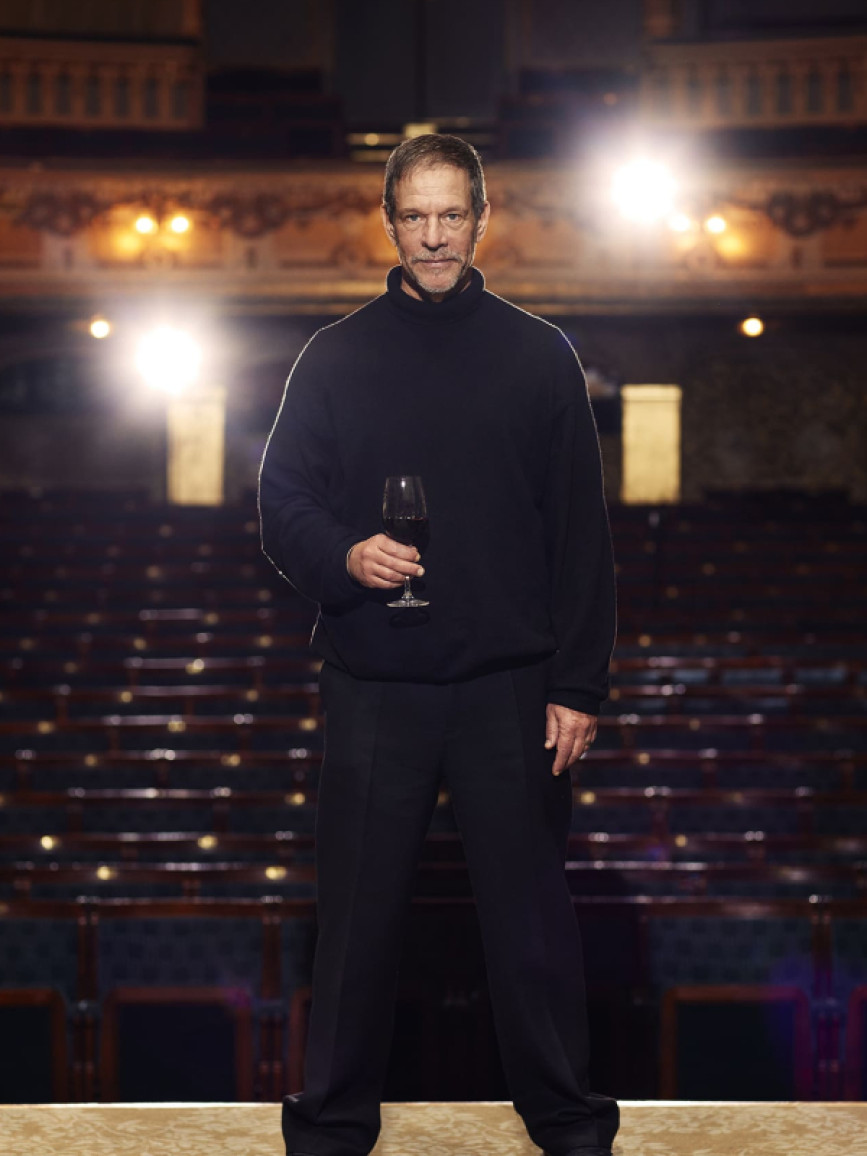
_
Talk with Thomas Hanzon
"The combination of flavors – the wine can be light, heavy, have a lot of dimensions and layers."
The current Kungliga Dramatiska Teatern (Royal Dramatic Theatre) building was inaugurated in 1908 in Stockholm. In one of two dressing rooms with original furnishings, we find Thomas Hanzon, a member of the permanent ensemble since 1989. But his career could have taken a different turn – Thomas Hanzon was a promising footballer who played for the national team. Then he abruptly quit, started his own theater group and finally came to Dramaten, where he has worked with Ingmar Bergman, among others.
Thomas Hanzon has also appeared in several feature films and television productions, among then Faithless by Ingmar Bergman and Red Dot, now on Netflix. At Dramaten, he has appeared in a wide range of plays, including The Tenderness I Host, A Family – August Osage County, Fanny and Alexander, The Death of a Salesman, Peer Gynt, The Inheritance...
But here we follow his journey in the world of wine – from his first kiss of Beaujolais Nouveau to his fascination with Burgundy and the Pinots from down under.


What sparked your interest in wine?
THOMAS HANZON
– I had no interest in wine until I arrived in Blois (a town 200 kilometers south of Paris) at the age of 19. I had just finished playing football and was traveling around Europe. I had no plans, so when I met a man who asked me if I wanted to work on his farm, I jumped at the chance. This was in November, and one day he came out with a couple of bottles and cheerfully shouted Beaujolais nouveau est arrivé! (the third Thursday of November sees the release of the first wine of the year in France, Beaujolais Nouveau, author’s note). At the time, I had no idea what it was, but it was incredibly good right there and then. It was the first time I felt that a wine can be good and easy to drink. – It was a bit romantic, I know, and today I don't think Beaujolais Nouveau is very good…

It was the first time I felt that a wine can be good and easy to drink. – It was a bit romantic.
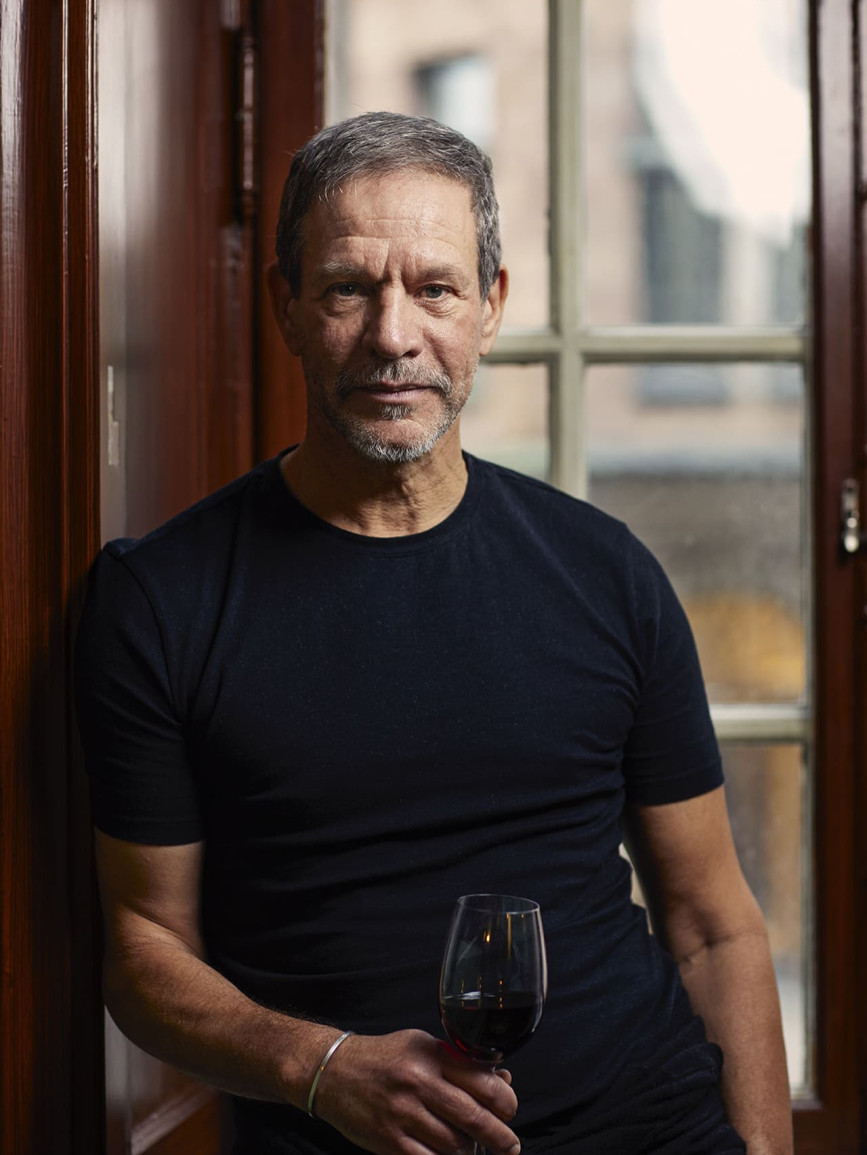

You were a really good footballer, and were offered a professional contract. Why did you stop?
THOMAS HANZON
– I discovered that it is a conservative and narrow world, with a lot of prejudice. And then I also realized why I was playing – to get my father’s love. He was an absent father and a big football fan. When I realized that, I dropped out.

But why theater? It's quite a drastic turnaround.
THOMAS HANZON
– Yes, it is a bit of a coincidence that I became an actor. When I hung up my football boots, I came up with two options: lawyer or actor. No one in our family comes from the theater, but it seemed like a magical world. Then it so happened that a friend needed extras. I volunteered and was hooked. Shortly thereafter, I started my own theater – to make a long story short, I was then involved in an acclaimed show at the Stockholm City Theatre... that's how it went. Now I have been at Dramaten for 35 years.

You have worked with Ingmar Bergman. It's inevitable to ask what it was like.
THOMAS HANZON
– Fantastic, I would say. We developed a relationship because I questioned a rope element in Peer Gynt. Everyone was very afraid of Ingmar, but I didn't like the idea of a rope traveling between us actors. I had my own idea. When Ingmar saw the rehearsal, he shouted: "Cut!" and called me forward. I said that I thought my idea was better than his. He listened, explained, and then I understood better. Since that day, he always started the rehearsals by saying "...Thomas might have other ideas." He probably thought it was funny that someone dared to contradict him.
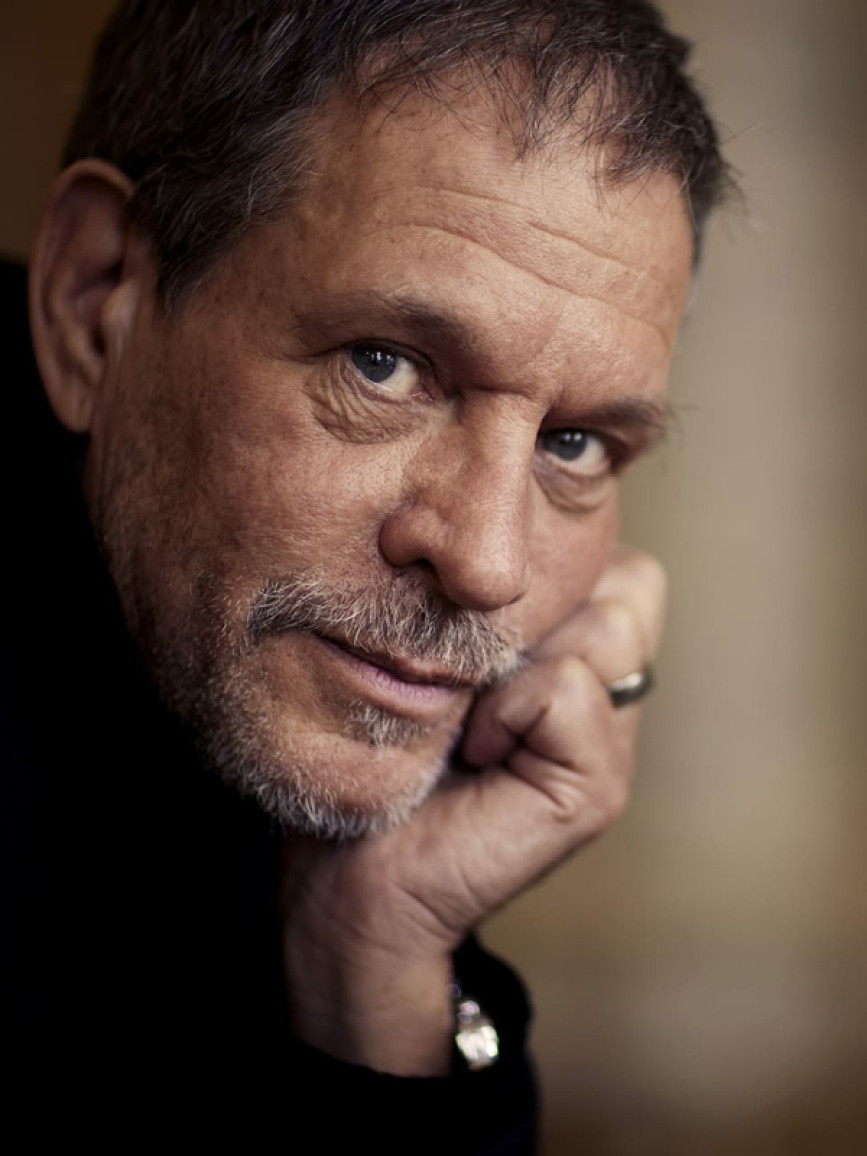

Ingmar Bergman probably thought it was funny, that someone dared to contradict him.

Back to the wine. How did your interest evolve from that juicy Gamay in the French countryside?
THOMAS HANZON
– I have a different approach to wine nowadays. It is stimulating to be offered something that you have never tasted before. The combination of flavors – the wine can be light, heavy, have a lot of dimensions and layers. At the same time – there are a billion wines out there, so I have to find out what I like and enjoy. Out of curiosity, I may buy wines I've never tasted before, or from grapes I've read about or Googled. One of my favorite things to do is to find bargain wines in supermarkets in France. I have a great wine app and can find bottles for €10 that would otherwise cost €80-90.

You seem to like French wines, and go there often. What is the attraction?
THOMAS HANZON
– Traveling around the small villages and buying local wines. Chancing it. Find the good stuff. The sad thing is that it's hard to get them again, so they become like memories.
Last summer when I traveled around Provence, I found a fantastic red wine from Château Crémade in the small appellation of Palette north of Aix-en-Provence. Provence is not well known for red wine, but this was one of the best I've had.

These wines become like memories.
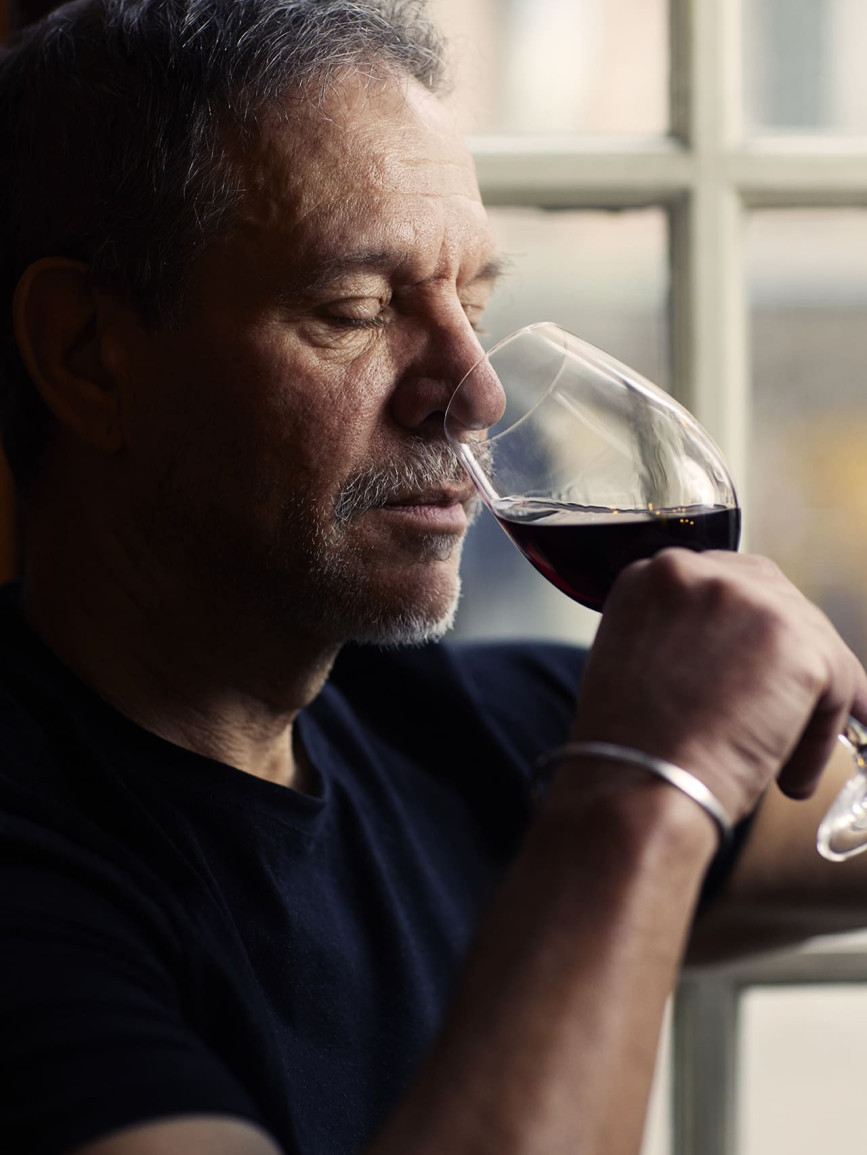

An impossible question to answer, but do you have a favorite wine?
THOMAS HANZON
– Burgundy, without a doubt. Their wines appeal to me. The balance between the sweetness, the acidity, the tannins... they contain so much but are still balanced. I get mentally stimulated by those wines. But to get those experiences, unfortunately you have to go up a price range. I am lucky to have a friend who imports wine, and through him, I have discovered Pinot Noir from other parts of the world. The only ones that can really compete with Burgundy, in my opinion is New Zealand. They have a cooler climate that suits the grape well.
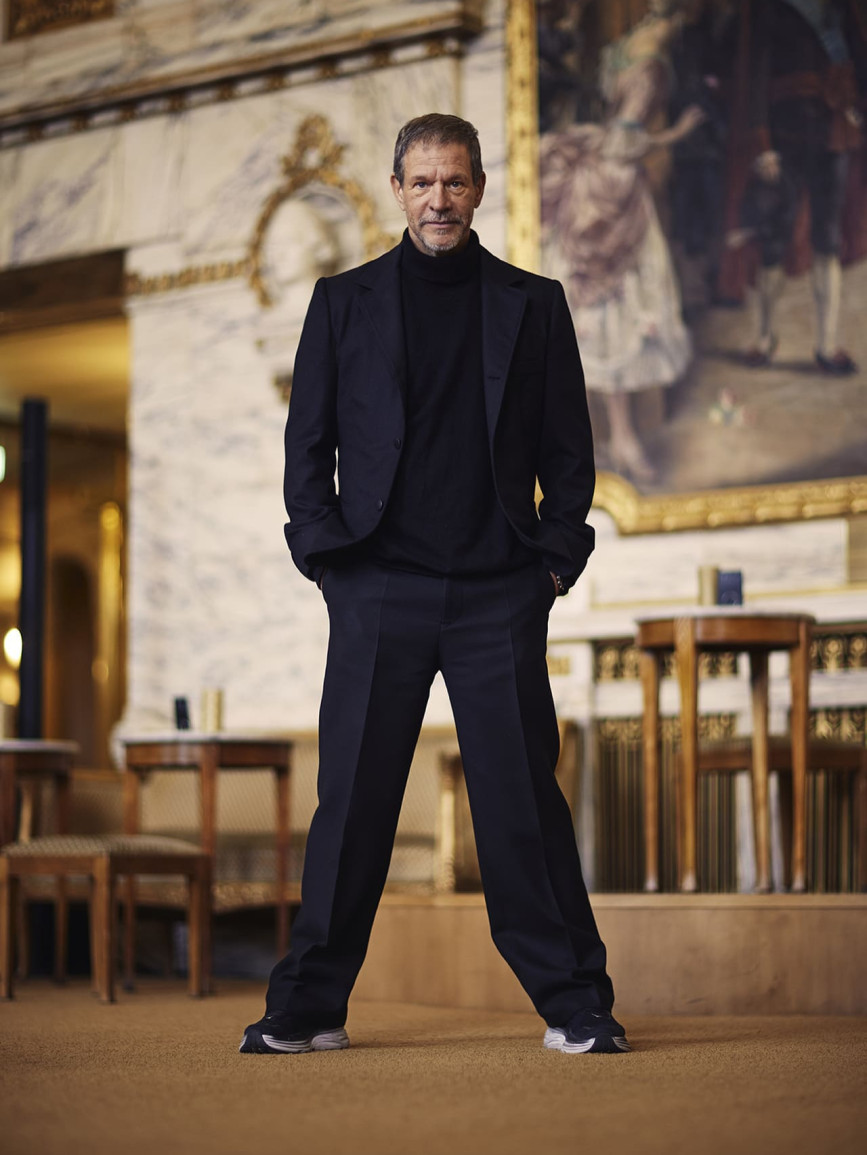

I often compare wine to cooking. The ingredients should complement each other.

What do you look for in a wine, what do you want it to give you?
THOMAS HANZON
– Again, balance. There should be harmony between the different flavor sensations you get. I often compare wine to cooking. Nothing should stand out more than anything else, the ingredients should complement each other. Then you have the aspect of time. A bœuf bourguignon, for example, only gets better if it is left for a day, just as many wines benefit from aging. It's in the small details.

Wine brings people together, it is an incredibly social drink.
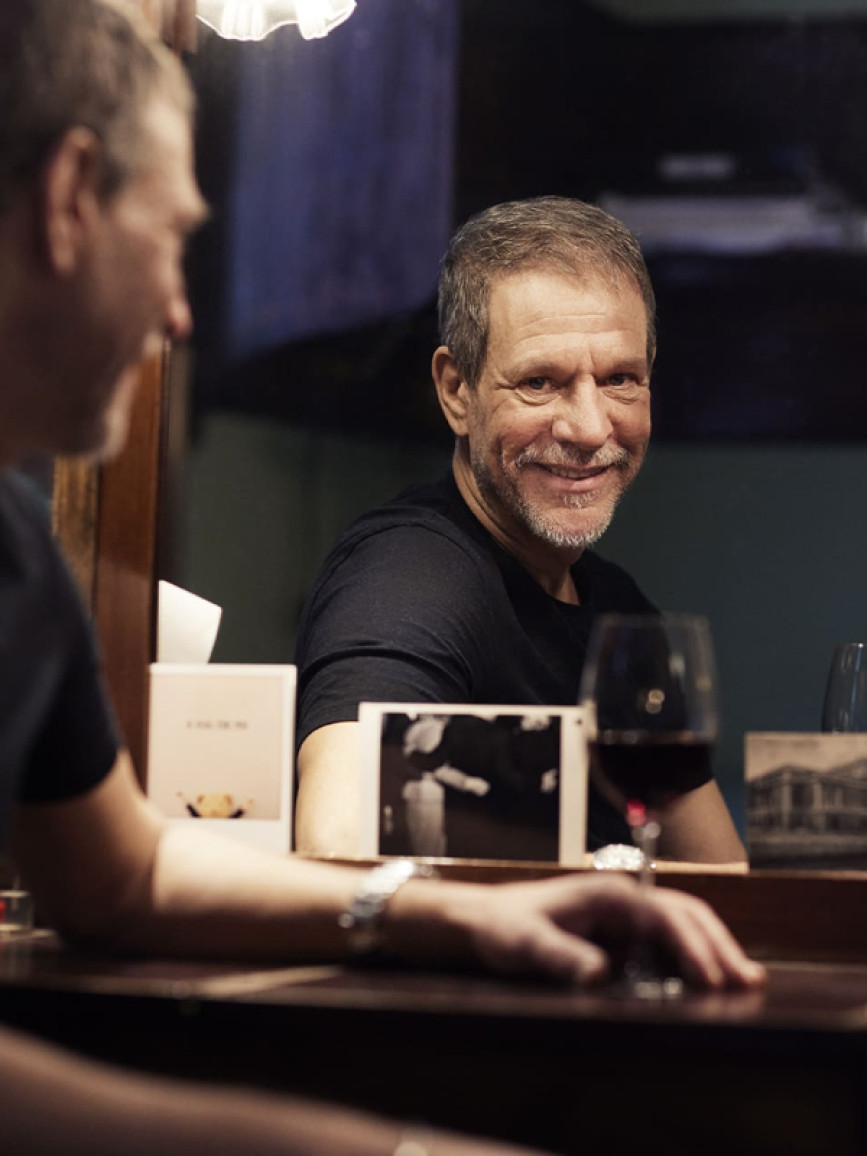

What does wine mean to you, apart from taste sensations?
THOMAS HANZON
– It is an incredibly social drink. Wine brings people together. When you open a bottle, you want to share it with others, share the experience and compare flavors. And it's also a reward, at the end of the day, telling it’s time to relax. A glass of wine makes you more creative, but it runs out after two glasses, ha ha.


A glass of wine makes you more creative.
Article - Lena Särnholm
A journalist since her teens, she started out as a news reporter and ended up at the equestrian magazine Ridsport, where she worked as an editor for more than 20 years. Then her interest in wine took over. Lena Särnholm studied as a sommelier at the Swedish Restaurant Academy and works as a freelancer in wine and equestrian sports. She writes mainly for the wine culture magazine Törst, Star Wine List and In Vino, and works part-time in a wine bar in Stockholm to keep up to date. She has also worked eight full harvests, mainly in Loire. She’s the Swedish ambassador for PIWI International.
Prolong the experience
Discover the profiles of creative and influential personalities explaining their relationship with wine, the secrets of sommeliers or legendary establishments.
When you subscribe to the magazine, your email address is only used to send you our content newsletter. You can unsubscribe at any time by clicking the unsubscribe link included in each newsletter. To find out more about management of your data and your rights, click here .


